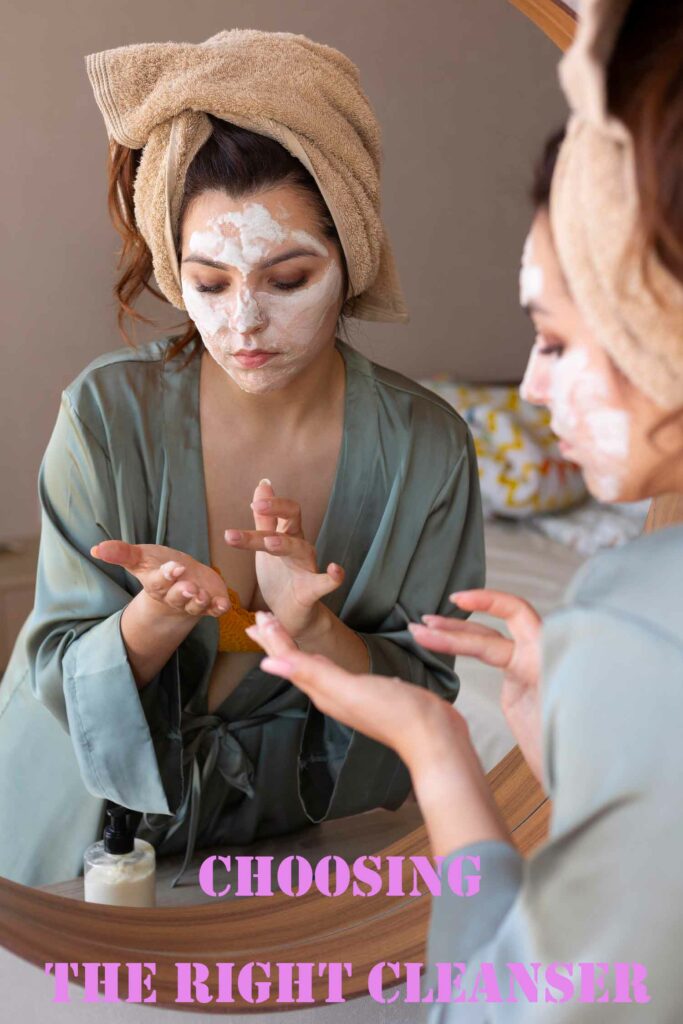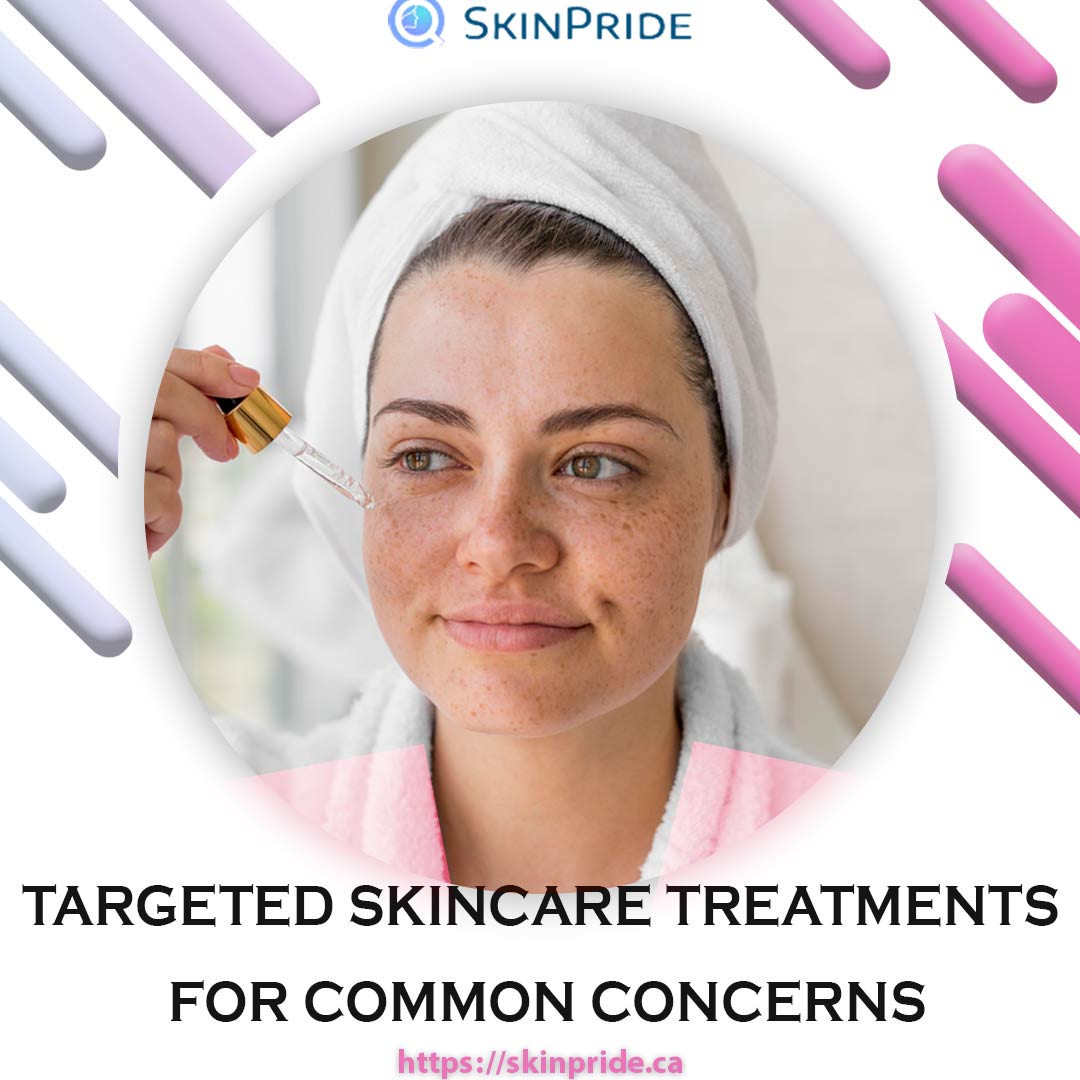Common Skincare Issues: Targeted Treatments
Healthy and radiant skin often requires a one-size-fits-all approach. It is important to recognize that our skin is unique, with specific concerns and needs that evolve over time. A targeted skincare treatment can help in this situation. Identifying and addressing your skin’s unique needs will enable you to achieve remarkable results. Explore effective treatments for prevalent skin issues and dive into the world of tailored skincare. Researching customized skincare treatments and products that cater to your skin’s needs can help you achieve the desired results. Make sure to consult a qualified skincare professional to get the best advice and results. Finally, don’t forget to maintain a healthy lifestyle and a regular skincare routine for the best skin results. Be sure to use the right products for your skin type and avoid harsh chemicals and fragrances. Remember to use sunscreen and moisturize daily to protect and nourish your skin. Taking these steps will help you maintain healthy and glowing skin. Drink plenty of water and get enough sleep to give your skin the rest it needs. Eat healthy foods and get plenty of exercise to keep your skin in its best condition.
Lastly, see a dermatologist if you experience any issues with your skin. Use the SkinPride app to track your skincare routine and monitor your skin. SkinPride’s AI-powered technology will help you customize a skincare plan that fits your needs. Be sure to use sunscreen when you are in the sun, as ultraviolet radiation can damage your skin. Use a moisturizer to keep the skin hydrated and to help with wrinkles and fine lines. Lastly, keep up with your skincare routine to make sure you are taking the best care of your skin.
Targeted Skincare: What You Need to Know
The concept of targeted skincare must be understood before engaging in specific treatments. In contrast to a generic skincare routine, tailored skincare addresses the concerns of the individual. Whether you’re dealing with acne-prone skin, ageing signs, hyperpigmentation, or sensitivity, customized approaches can make a world of difference. An effective tailored skincare plan should consist of products and treatments that are specifically chosen to address the individual’s needs. Consulting with a skincare specialist can be helpful to ensure that your skincare plan is tailored to your unique needs. Ultimately, a tailored skincare plan can help you achieve healthier and better-looking skin. With the right skincare plan, you can also achieve long-term results, since it is designed to address your specific skin needs. Furthermore, a tailored skincare plan can help you save money in the long run, as it will only contain products and treatments that are necessary for your particular needs.
Treating Acne Prone Skin The Role of Salicylic Acid
Acne-prone skin often deals with clogged pores and breakouts. Salicylic acid, a beta-hydroxy acid (BHA), is a game-changer. It exfoliates deep within pores, clearing out debris and preventing future blemishes. It also helps to reduce redness and inflammation, while soothing and hydrating the skin. Salicylic acid can be found in many skin care products, such as cleansers, masks, and spot treatments. It is an effective way to treat acne and keep skin clear. Salicylic acid is the ideal choice for acne-prone skin since it unblocks pores and reduces inflammation. However, as with all skincare products, it is imperative to use it as directed and consult a dermatologist if necessary. Salicylic acid is a great option for those with acne-prone skin, but it should be used with caution and in consultation with a dermatologist if necessary. Additionally, it is important to use a moisturizer alongside a product containing salicylic acid to help minimize dryness and irritation. It is also important to avoid using too much product, as this can lead to irritation and over-drying of the skin. Additionally, it is important to use sunscreen when using products containing salicylic acid, as they can make skin more sensitive to the sun. It is wise to start with a low-concentration product and gradually increase it as your skin gets adjusted to it. Also, it is imperative to adjust your skincare routine to the changing seasons. Finally, it is critical to consult a dermatologist to make sure the products and routines you use are right for your skin.
Choosing the Right Cleanser

Incorporating a Spot Treatment
For those pesky pimples that still surface, targeted spot treatment with ingredients like benzoyl peroxide or sulfur can expedite their demise. These ingredients work to unclog pores and dry out the blemish so it heals faster. It’s important to choose a spot treatment that won’t aggravate your skin, so be sure to check the ingredients list. Be careful to only apply it to the affected area and not the surrounding skin. Spot treatments can also be used to prevent future pimples. Applying a thin layer of the spot treatment to areas that are prone to breakouts can help reduce the likelihood of a future blemish. Furthermore, spot treatments can also be used as an overnight treatment to help reduce inflammation and heal the blemish faster. However, it is important to adjust the amount of spot treatment used according to the severity of the blemish. Overusing the product can lead to skin irritation and dryness. It is best to start with a small amount of spot treatment and gradually increase the amount if needed. Additionally, it is important to always follow up with a moisturizer to keep the skin hydrated. Spot treatments should only be used as needed and not on a daily basis. It is also important to avoid using multiple spot treatments at the same time, as this can be overly harsh on the skin. Finally, it is important to remember to use sunscreen when using spot treatments as they can increase the skin’s sensitivity to sunlight.
Combatting Signs of Aging
For those pesky pimples that still surface, targeted spot treatment with ingredients like benzoyl peroxide or sulfur can expedite their demise. These ingredients work to unclog pores and dry out the blemish so it heals faster. It’s important to choose a spot treatment that won’t aggravate your skin, so be sure to check the ingredients list. Be careful to only apply it to the affected area and not the surrounding skin. Spot treatments can also be used to prevent future pimples. Applying a thin layer of the spot treatment to areas that are prone to breakouts can help reduce the likelihood of a future blemish. Furthermore, spot treatments can also be used as an overnight treatment to help reduce inflammation and heal the blemish faster. However, it is important to adjust the amount of spot treatment used according to the severity of the blemish. Overusing the product can lead to skin irritation and dryness. It is best to start with a small amount of spot treatment and gradually increase the amount if needed. Additionally, it is important to always follow up with a moisturizer to keep the skin hydrated. Spot treatments should only be used as needed and not on a daily basis. It is also important to avoid using multiple spot treatments at the same time, as this can be overly harsh on the skin. Finally, it is important to remember to use sunscreen when using spot treatments as they can increase the skin’s sensitivity to sunlight.
The Power of Retinoids
To combat fine lines and wrinkles, retinoids are your best friends. These vitamin A derivatives stimulate collagen production and promote cellular turnover. This helps to reduce the appearance of wrinkles, and it can also help to even out skin tone and texture. Retinoids are an effective anti-ageing solution that can be used in both skincare products and treatments. However, retinoids can be irritating to the skin, so people should start slowly and use the lowest concentration possible. It is also important to use sunscreen when using retinoids, as they can make the skin more sensitive to the sun. Retinoids should be applied in the evening, as they can increase sensitivity to sunlight. People should also avoid using retinoids with other harsh ingredients, as this can increase the risk of irritation. It is important to note that results will not be seen immediately, as it can take several weeks or months for retinoids to take effect. Additionally, the effects of retinoids are not permanent, and individuals must continue using them to maintain the desired results.
Hydration is Key
Keep your skin plump and youthful by prioritizing hydration. Incorporate hyaluronic acid and ceramides into your routine to lock in moisture. Also, use a moisturizing sunscreen to protect your skin from damaging UV rays and harsh environmental conditions. Drink plenty of water throughout the day and consider adding more fruits and vegetables to your diet for an added boost of hydration. Finally, limit your sugar intake and watch out for products with harsh ingredients that can strip your skin of its natural oils. After all, using SkinPride as an analyser for skin application can help you identify which products are best suited for your skin.
Conclusion
Targeted skincare treatments are a beacon of hope for addressing common skin concerns effectively. By tailoring your routine to your unique needs, you can achieve remarkable results. Remember to be patient and consistent, and consult a dermatologist if you have severe concerns. Skincare treatments come in a variety of forms, from serums to creams to masks. Experiment with different products to find the ones that work for you. Finally, don’t forget to use sunscreen to protect your skin from UV damage.
FAQs
Yes, you can incorporate multiple treatments, but it’s crucial to introduce them gradually and monitor how your skin responds.
Exfoliate 2-3 times a week, but avoid over-exfoliating, as it can worsen the condition.
Yes, but choose products specifically formulated for sensitive skin and perform patch tests.
Apply retinoids at night after cleansing and before moisturizing.
Yes, UV rays penetrate clouds, so sunscreen is essential for protection.

